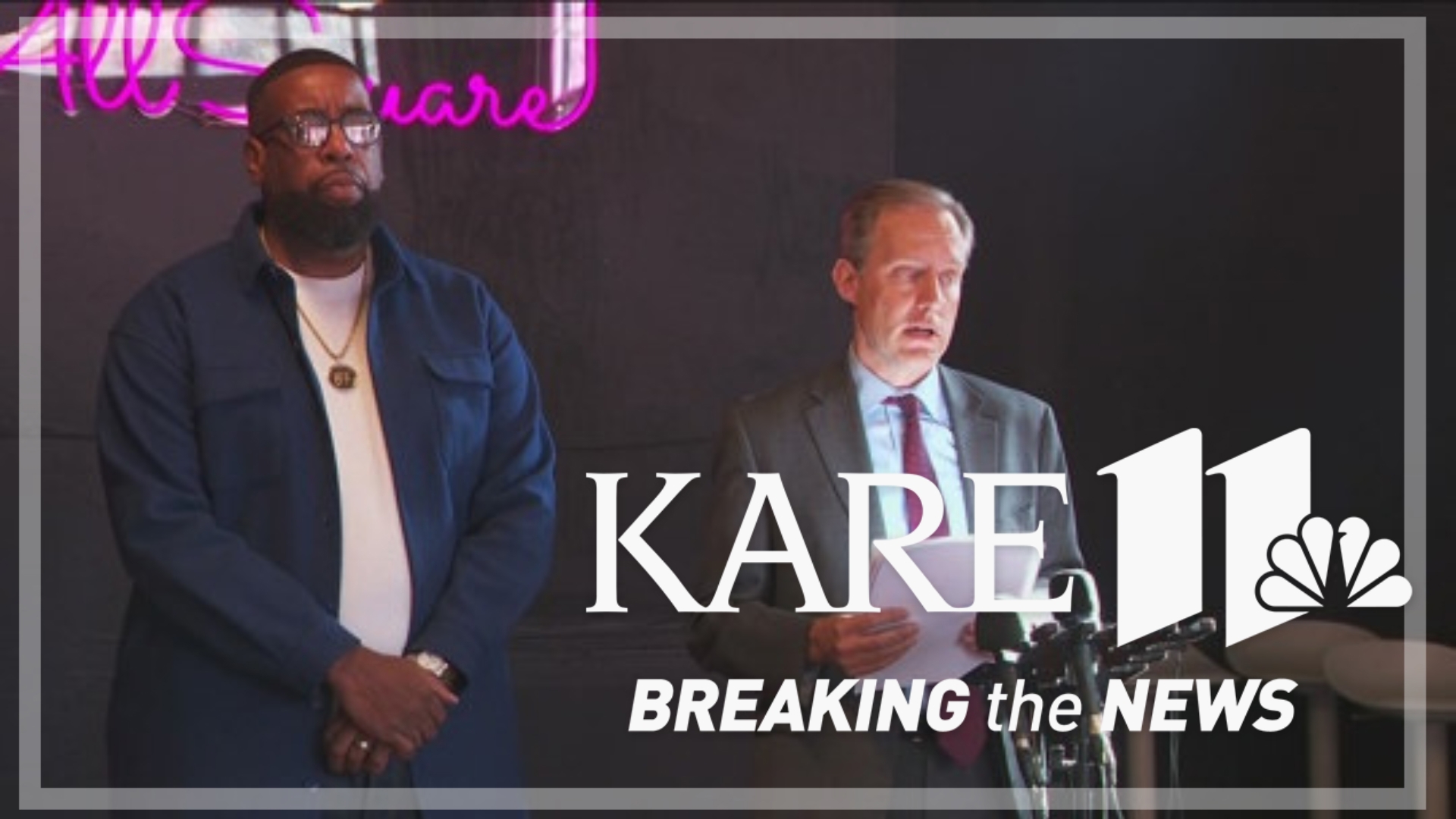MINNEAPOLIS — The state’s top elections officials, faith groups and other nonprofits are working to remind formerly incarcerated persons they can vote in Tuesday’s election, even if they’re still on probation.
This is the first presidential election since the law was changed in 2023, which instantly restored the right to vote to more than 50,000 former felony offenders still serving the community portion of their sentences.
"There was some murkiness, some confusion before this law was implemented," Secretary of State Steve Simon told reporters Tuesday. "Now it's real clear. If you're in prison for a felony, you know you can't vote. But the minute you step out in Minnesota and many other states now you can vote."
Simon joined Brian Fullman of the interfaith nonprofit ISAIAH for a press conference at All Square, a Minneapolis café that helps people reenter society beyond prison walls. Fullman is one of several advocates in the state who's been working to get the word out about the law change.
"A lot of my work I've been doing around the house meetings, from barber shop to barber shop, from business to business, from church to church has been about lifting up the news to whoever will listen," he said.
Fullman is a longtime barber who went to prison at the age of 19 on a drug rap. His voting rights were restored in 1994 after just one year on probation, but he didn’t know it. He said he missed voting in every election until 2008, because he had been told his voting rights were stripped for life.
"I was told in my neighborhood that I couldn't vote. But I was told by somebody else who was a felon in my community, unfortunately, so misinformation travels. It's like cancer," he said. "It just continues to travel and it decays."
Fullman was part of the citizen lobbying effort at the State Capitol to get the law changed and was there for the joyous celebration at the State Capitol on a cold night in February of 2023, when the Minnesota Senate took the final vote on the Restore the Vote bill.
That came after two decades of failed attempts by the Second Chance Coalition and allies, who couldn’t get past Republican opposition. Most GOP lawmakers asserted the ban on voting should apply to the full sentence handed down by the courts, including time served in the community, commonly known as probation.
Governor Walz signed the bill in early March of 2023, making Minnesota the 22nd state to allow former felony offenders living outside of prison to vote regardless of probation status. Opponents have launched multiple legal challenges, but none of them have succeeded thus far.
"And the national trends are all in this direction," Simon said. "I know of no other state looking to be more punitive or go in the other direction. Minnesota is really riding the wave of a national trend."
Advocates asserted that Minnesota’s judicial system traditionally leaned towards shorter time in prison but longer probation sentences that could stretch for decades. One of the advocates who came to the Capitol several times had a check writing felony in her 30s but would’nt be able to vote until she reached her 70s.
The other argument made by supporters was that regaining the right to vote can reduce recidivism because it makes released offenders feel more like they’re part of a community and have more of a voice in local elections.
"I understood that I was a first-class citizen, and not somebody that needed to be patted on the head and told ‘Wait your turn, your voice is not valuable yet.’ So. I just really appreciate what the state of Minnesota has done," Fullman remarked.
Steve Simon has visited every state prison speaking to inmates who are nearing release. He asserts the Minnesota Dept. of Corrections is doing a good job getting the word out to inmates on the verge of heading home.
"For folks who are about to get out, say within five or six weeks, there’s typically a class of some kind, that helps reorient folks. This is a part of that curriculum. Then they get written information upon actual release," Simon explained. "And they've connected not just us, but nonprofits, faith groups and others with the county corrections system. They're typically the ones who run the probation system."
But Fullman is also hoping to reach people who’ve been out of custody for a long time, who may still be operating in the dark when it comes to their voting rights, the way he once was.
"So, yes, this is about our brothers and sisters who are now reentering society right away, but it's also about our brothers and sisters who've been walking around with the wrong messaging, misinformation about how they can use their voices publicly, so I'm very passionate about this work," he said.
Removing the voting ban for felony offenders eliminated the most common form of election law violations in Minnesota in recent history.
Double voting, non-citizen voting, ID fraud are extremely rare here, but in 2008 dozens of people were prosecuted for voting -— or just registering to vote — before they were off probation.
The system of cross-checks between the judiciary and election officials was tightened after that. Under the new law, it's much easier to track. Incarcerated inmates don't have access to voting booths or absentee ballots.

